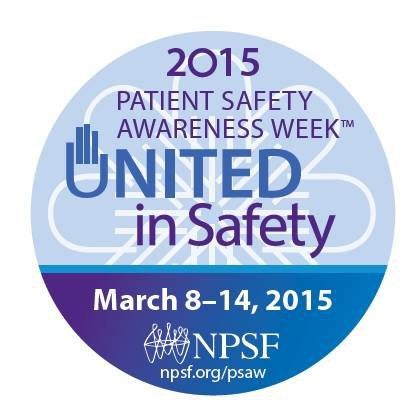-
How Big Is the Risk of Errors in Hospitals?
 You might think that cancer, heart disease, and similar illnesses would completely dominant the top five leading causes of death in the U.S. And indeed, far too many people die of these serious diseases each year. However, about 440,000 Americans die each year of problems that are entirely preventable, making hospital errors the third leading cause of death in the U.S. Hospital errors, or medical malpractice, can occur for many reasons, such as improperly trained staff, poor communication among staff members, and failure to adhere to established patient safety protocols.
You might think that cancer, heart disease, and similar illnesses would completely dominant the top five leading causes of death in the U.S. And indeed, far too many people die of these serious diseases each year. However, about 440,000 Americans die each year of problems that are entirely preventable, making hospital errors the third leading cause of death in the U.S. Hospital errors, or medical malpractice, can occur for many reasons, such as improperly trained staff, poor communication among staff members, and failure to adhere to established patient safety protocols. One of the most common hospital-acquired conditions is infections. Physicians and other healthcare providers should carefully follow sterilization protocols to prevent the spread of germs from patient to patient. Unfortunately, these protocols aren’t always followed. According to the 2011 Health Grades Hospital Quality in America Study estimated 722,000 patients contracted an infection during hospital care in the U.S. The CDC recently estimated that 1 in 25 patients end up with hospital-acquired infections. Other forms of medical malpractice can include surgical errors, which may include anesthesia errors or unintended injury to nerves or blood vessels. Medication errors, birth injuries, and anesthesia errors can also cause patient death.
You can protect yourself and your loved ones by becoming informed of your legal rights. Contact Pegalis & Erickson, a malpractice law firm in Long Island, New York, at (516) 684-2900 or visit us online to learn more about medical malpractice.
-
What Men Need to Know about Vascular Disease
Thanks to public awareness campaigns, women have been empowered to take control of their wellness by evaluating their risk of heart and vascular disease. Yet, cardiovascular disease is also the leading cause of death in the U.S. for men. Men often rely on their doctors to provide screening recommendations and lifestyle advice. Unfortunately, misdiagnosis and delayed diagnosis are not uncommon. Men can protect themselves from both medical malpractice and vascular disease by becoming better informed about health issues during Men’s Health Week, which is designated as the second week of June.
Aortic Disease
[1].jpg)
One type of vascular disease men may be diagnosed with is aortic disease. The aorta is the body’s largest artery. If the aorta is affected by vascular disease, it can dilate, or develop an aneurysm. An aneurysm is a bulging, weakened area of a blood vessel that may sometimes rupture. Or, the aorta may tear, which is known as dissection. Aortic disease can increase the risk of future life-threatening vascular problems. Some examples of conditions and diseases that can lead to aortic disease include high blood pressure, atherosclerosis, connective tissue disorders, and genetic conditions like Marfan syndrome.Peripheral Artery Disease (PAD)
When narrowed blood vessels cause a reduction of blood flow to the limbs, it is known as peripheral artery disease. If you have PAD, it means that the limbs, typically the legs, do not receive enough blood to meet the body’s needs. This can cause symptoms such as leg pain while walking, cramping, and slow healing sores. PAD can also indicate widespread atherosclerosis, which increases the risk of stroke and heart attack.For more than 40 years, the medical malpractice team at Pegalis & Erickson has been successfully advocating for the rights of injured patients and their families. If you or a loved one has suffered injuries as a result of misdiagnosis, delayed diagnosis, or other forms of medical negligence in Long Island, NY, you can call us right away at (516) 684-2900. Our medical negligence lawyers will carefully review your case and explain your legal options.
-
Patient Safety Awareness Week

Medical malpractice is more common than you might think, which is one reason why Patient Safety Awareness Week is so important. This year, it is held during the second week of March. It is a public awareness and education campaign launched by the National Patient Safety Foundation (NPSF). The NPSF has decided that the theme for 2015 is “United in Safety.” The theme reflects the need for close collaboration among patients, healthcare advocates, and healthcare providers to reduce instances of medical malpractice, such as medication errors and birth injuries.
The NPSF has partnered with various organizations to promote the distribution of educational materials to clinicians, patients, consumers, and health systems. For patients and their caregivers, these educational materials may open the door to enhanced communication with healthcare providers, along with active patient engagement in their own healthcare.
Patient safety awareness is essential. Even well-intentioned healthcare providers can make serious medical mistakes that can lead to devastating consequences. Patients and caregivers who have been affected by medical negligence in Long Island, New York can call Pegalis & Erickson at (516) 684-2900 to discuss their legal rights.
-
What Is the Importance of a Second Opinion?
With some types of medical advice, it’s best to seek out a second opinion. For instance, if your regular doctor suggests that you undergo a serious operation, it’s a good idea to get another doctor’s point of view. After all, an operation is a significant undertaking with no shortage of risk, and you wouldn’t want to follow a recommendation based on a misdiagnosis—an all-too-common form of medical malpractice.
When You Should Get a Second Opinion When you speak with your doctor, it’s important to take a proactive role in decisions that can impact our future health. For example, if your physician suggests a serious operation, you should consider getting another opinion. Operations are significant undertakings with risk. You wouldn’t want to follow recommendations based on misdiagnosis, which is sadly an all-too-common medical mistake. If your MD recommends surgery for a condition that isn’t life threatening, you should explore your range of options. Before you agree to treatment, ask more questions, share your concerns, and consider getting a second opinion.
 What to Discuss With a Second Doctor
What to Discuss With a Second Doctor
In advance of your appointment, have your medical records sent to the second doctor, or bring them with you, which can spare you from being re-tested. Go with questions. Try to bring someone with you as a second set of ears and who can also take notes. If the second doctor has a different opinion, discuss that with your main doctor, and perhaps seek input of a third medical professional. professional.If you or someone you love has suffered complications due to an ill-advised medical procedure, call the medical malpractice law firm of Pegalis & Erickson at (516) 684-2900. We’ve been rated Best Lawyers by U.S. News and World Report and work with clients throughout Long Island involving cancer misdiagnosis, neurosurgical related injuries, hospital liability, birth injuries, infectious disease, and other forms of medical malpractice.
-
Patient Safety Awareness Week is March 8-15!
Patient Safety Awareness Week is coming soon. Download free campaign logos, order themed items for your events, and keep on top of updates to our activities.
-
The Proactive Patient’s Guide to Quality Healthcare [INFOGRAPHIC]
What is your most precious commodity? If you’re like most people, it is your health and the health of those you love. Many people enter the medical system—the system that cares for your valuable health—and simply assume that they are always in good hands. In reality, mistakes can and do happen in the medical environment, and the results can be devastating. That is why it is so important for you to become actively engaged in your own medical care and in the care of your loved ones. Speak up, ask questions, follow up on test results, and get second opinions. Refusing to be a passive patient could save your life. Pegalis & Erickson of Long Island devised this guide to being a proactive patient. Use it to take control of your own medical care. If a medical mistake happens to you, be sure to seek a medical malpractice attorney immediately to learn your rights. Please pass this vital information on to your family and friends.
![The Proactive Patient's Guide to Quality Healthcare [INFOGRAPHIC] medical malpractice lawyer long island](https://www.medicalnegligenceny.com/wp-content/uploads/The-Proactive-Patients-Guide-to-Quality-Healthcare[1].jpg)
Recent Posts
categories
- Uncategorized
- Infographic
- Patient Safety
- Patient Health
- Stillbirth
- Birth Injuries
- Medical Malpractice
- Medical Negligence
- Event
- Erb's Palsy
- Injury
- ER
- Video
- Cancer Misdiagnosis
- Medication Errors
- Cerebral Palsy
- Medical Negligence Lawyer
- Anesthesia Injuries
- Brachial Plexus
- Prostate Cancer
- About Us
- Men's Health
- Skin Cancer
- Breast Cancer
- Misdiagnosis

